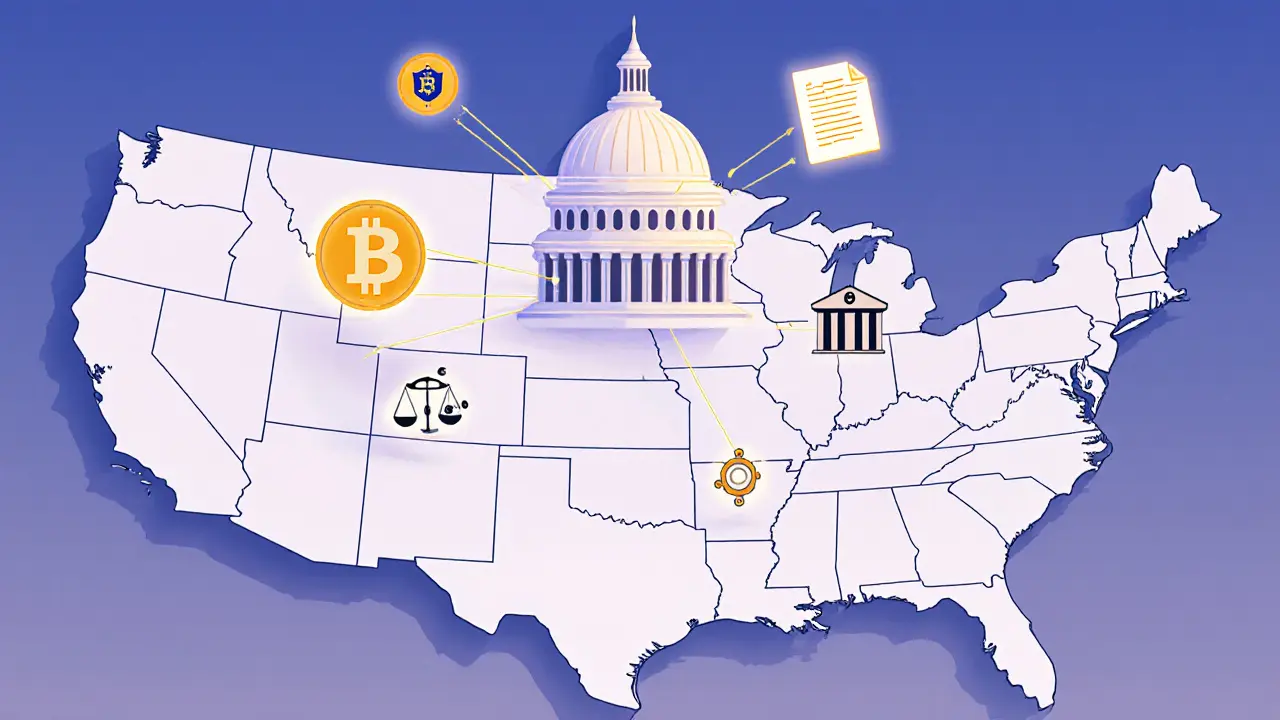US Cryptocurrency Regulation: What You Need to Know
When navigating US cryptocurrency regulation, the body of federal and state rules that govern digital assets, exchanges, and related services in the United States. Also known as American crypto regulation, it shapes how investors, developers, and businesses operate. The SEC, the Securities and Exchange Commission, enforces securities laws on token offerings and the CFTC, the Commodity Futures Trading Commission, oversees derivatives and commodity‑type tokens are the two pillars of federal oversight.
Key Agencies and Their Impact
The FinCEN, Financial Crimes Enforcement Network, applies AML and KYC rules to crypto‑wallet providers and exchanges creates a compliance baseline that feeds into state‑level licensing. Meanwhile the IRS, Internal Revenue Service, treats crypto as property for tax purposes, requiring reporting of gains and losses. Together these agencies form a regulatory chain: US cryptocurrency regulation requires registration, reporting, and monitoring, while state boards such as the New York Department of Financial Services add extra layers for “virtual currency” businesses. This network influences everything from token launch approvals to everyday trading fees.
Because the landscape shifts fast, staying informed means watching how rules affect utility tokens, exchange listings, and tax obligations. Our collection below breaks down practical topics: a 2025 guide to utility token compliance and the Howey test, an overview of India’s 30% crypto tax for comparison, reviews of global exchanges that grapple with US mandates, and deep dives into airdrop safety amid regulatory scrutiny. Whether you’re a trader, developer, or casual holder, the articles provide concrete steps to align with the current US framework and anticipate upcoming changes. Dive into the posts to see how each piece fits into the broader regulatory puzzle.
A 2025 guide that breaks down US crypto regulation state by state, covering federal laws, New York's BitLicense, California's DFPI, other key states, compliance steps, and future outlook.
Categories
Archives
Recent-posts
Future of NFTs in Global Supply Chains: How Blockchain Is Transforming Traceability and Trust
Nov, 2 2025



 Finance
Finance




